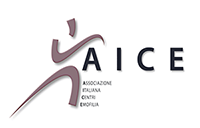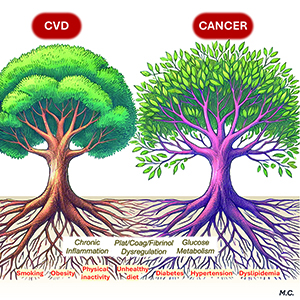Risk of recurrent venous thromboembolism in cancer patients after discontinuation of anticoagulant therapy

Submitted: 2 February 2024
Accepted: 24 February 2024
Published: 16 May 2024
Accepted: 24 February 2024
Abstract Views: 478
PDF: 187
Publisher's note
All claims expressed in this article are solely those of the authors and do not necessarily represent those of their affiliated organizations, or those of the publisher, the editors and the reviewers. Any product that may be evaluated in this article or claim that may be made by its manufacturer is not guaranteed or endorsed by the publisher.
All claims expressed in this article are solely those of the authors and do not necessarily represent those of their affiliated organizations, or those of the publisher, the editors and the reviewers. Any product that may be evaluated in this article or claim that may be made by its manufacturer is not guaranteed or endorsed by the publisher.
Similar Articles
- Agnes Y.Y. Lee, Venous thromboembolism treatment in patients with cancer: reflections on an evolving landscape , Bleeding, Thrombosis and Vascular Biology: Vol. 3 No. s1 (2024): 12th ICTHIC
- Yishi Tan, Marc Carrier, Nicola Curry, Michael Desborough, Kathryn Musgrave, Marie Scully, Tzu-Fei Wang, Mari Thomas, Simon J. Stanworth, Cancer complicated by thrombosis and thrombocytopenia: still a therapeutic dilemma , Bleeding, Thrombosis and Vascular Biology: Vol. 3 No. s1 (2024): 12th ICTHIC
- Ronda Lun, Deborah M. Siegal, Cancer-associated ischemic stroke: current knowledge and future directions , Bleeding, Thrombosis and Vascular Biology: Vol. 3 No. s1 (2024): 12th ICTHIC
- Mehrie H. Patel, Alok A. Khorana, New drugs, old problems: immune checkpoint inhibitors and cancer-associated thrombosis , Bleeding, Thrombosis and Vascular Biology: Vol. 3 No. s1 (2024): 12th ICTHIC
- Luca Barcella, Chiara Ambaglio, Paolo Gritti, Francesca Schieppati, Varusca Brusegan, Eleonora Sanga, Marina Marchetti, Luca Lorini, Anna Falanga, Long-term persistence of high anti-PF4 antibodies titer in a challenging case of AZD1222 vaccine-induced thrombotic thrombocytopenia , Bleeding, Thrombosis and Vascular Biology: Vol. 2 No. 2 (2023)
- Marcello Di Nisio, Matteo Candeloro, Nicola Potere, Ettore Porreca, Jeffrey I. Weitz, Factor XI inhibitors: a new option for the prevention and treatment of cancer-associated thrombosis , Bleeding, Thrombosis and Vascular Biology: Vol. 3 No. s1 (2024): 12th ICTHIC
- Maria Barca-Hernando, Victor Garcia-Garcia, Luis Jara-Palomares, Location of metastasis and complications in patients with venous thromboembolism and cancer: a systematic review , Bleeding, Thrombosis and Vascular Biology: Vol. 3 No. s1 (2024): 12th ICTHIC
- Ang Li, Emily Zhou, Trends and updates on the epidemiology of cancer-associated thrombosis: a systematic review , Bleeding, Thrombosis and Vascular Biology: Vol. 3 No. s1 (2024): 12th ICTHIC
- Gisoo Imani, Aaron Wilson, Sara Vazquez, Daniel M. Witt, Pathways for lower extremity superficial vein thrombosis management in an academic medical center , Bleeding, Thrombosis and Vascular Biology: Vol. 4 No. 1 (2025)
- Gualtiero Palareti, Paolo Prandoni, Cristina Legnani, Emilia Antonucci, Serena Zorzi, Alberto Tosetto, Lorenza Bertù, Sophie Testa, Vittorio Pengo, Walter Ageno, Ida Martinelli, Benilde Cosmi, Eugenio Bucherini, Daniela Poli, Rationale and design of a study on D-dimer use to stratify patients after a first unprovoked venous thromboembolism for their risk of recurrence: extended low-dose Apixaban given only to patients with positive D-dimer results , Bleeding, Thrombosis and Vascular Biology: Vol. 1 No. 1 (2022)
You may also start an advanced similarity search for this article.

 https://doi.org/10.4081/btvb.2024.124
https://doi.org/10.4081/btvb.2024.124










